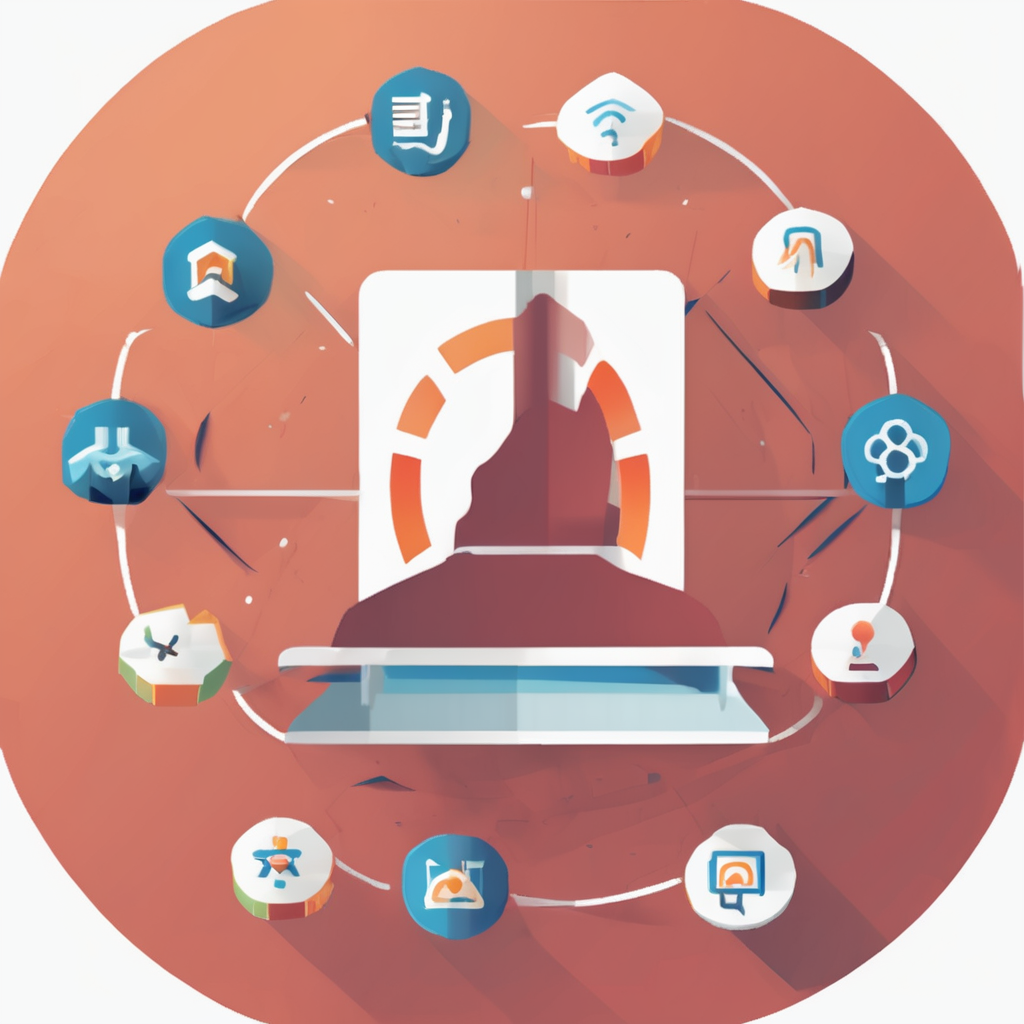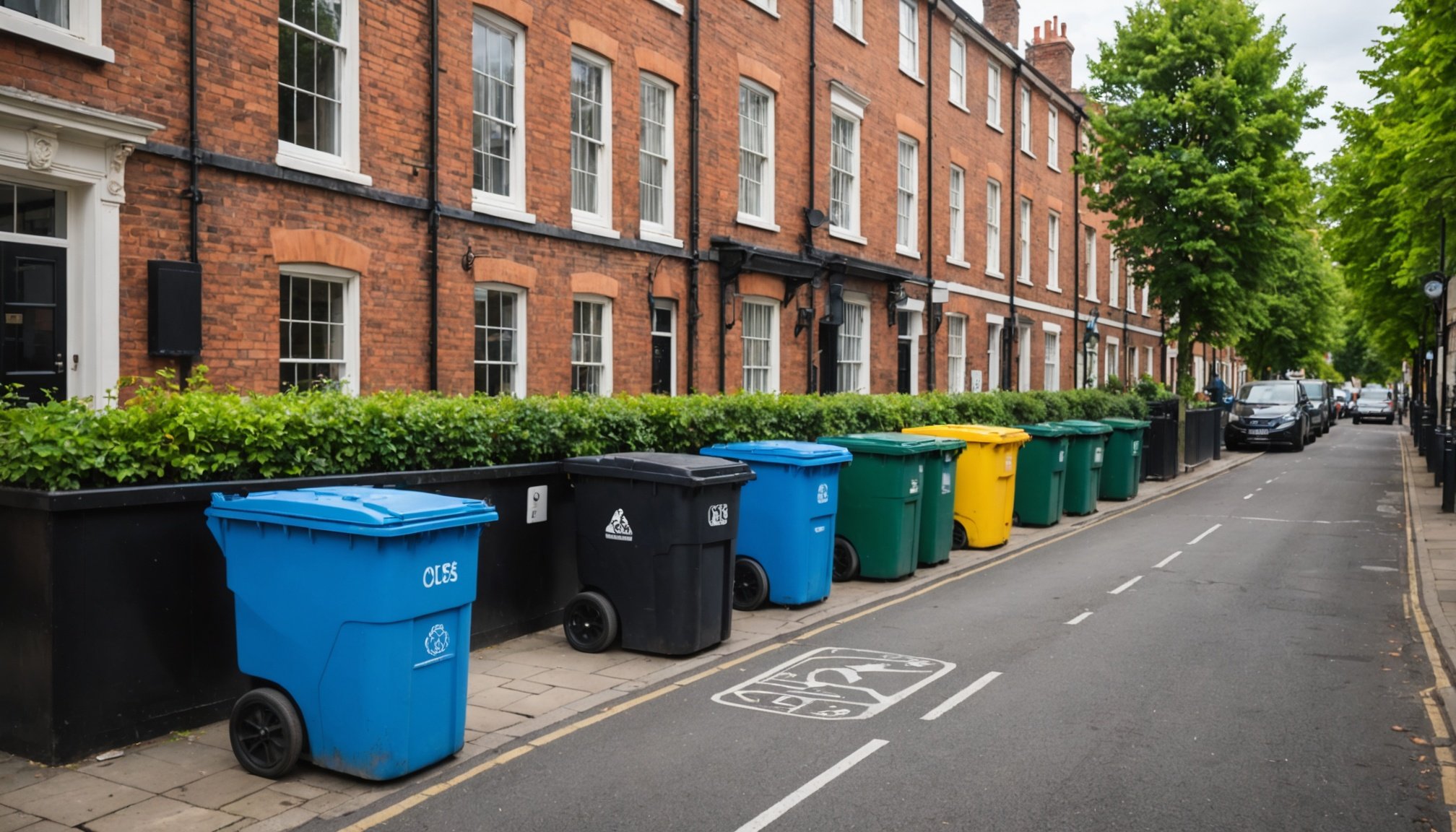Overview of IoT in Waste Management
The integration of IoT technologies is revolutionising waste management by enhancing efficiency and sustainability in smart cities. By connecting devices and systems through the Internet of Things, traditional waste management solutions have evolved, allowing for real-time data and smarter decision-making.
Importance of IoT in Waste Management
Utilising IoT technologies in urban waste systems creates significant improvements. For example, smart bins equipped with sensors can detect when they are full and signal collection teams, optimising collection schedules. This leads to reduced fuel consumption and operational costs.
In parallel : Transforming Classroom Management: Innovative Ways UK Schools Can Leverage AI Technology
Current Applications in Urban Waste Systems
IoT has been widely adopted in UK waste systems, with applications aimed at maximising resource use while minimising environmental impact. Some towns employ GPS-tracked vehicles for adaptive routing, thus efficiently managing waste collection.
Benefits of Implementing IoT
Implementing IoT technologies in waste collection and processing enhances operational efficiency. The primary benefits include improved resource allocation, reduced collection times, and better route planning. This results in a cleaner urban environment and significant cost savings for local governments. As cities continue to grow, the importance of adopting advanced technologies in waste management becomes increasingly critical.
Have you seen this : Essential Data Encryption Strategies for Financial Services in the UK: Best Practices for Security
Case Studies of UK Cities Implementing IoT Innovations
The United Kingdom has become a notable player in the realm of IoT success stories by implementing innovative waste management solutions in its cities. Let’s delve into three significant case studies: London, Manchester, and Bristol.
London: Smart Bins and Waste Sensors
In London, smart waste bins equipped with fill-level sensors represent a remarkable leap in waste management innovations. These sensors provide real-time data on bin usage, allowing optimisation of waste collection routes, which enhances efficiency by reducing unnecessary trips. Consequently, this has led to a significant improvement in resource allocation while boosting overall operational efficiency. The public’s reception to these IoT waste solutions has been positive, with citizens noting cleaner streets and less frequent overflow incidents.
Manchester: Data-Driven Waste Management
Manchester’s approach to waste management incorporates IoT data analytics to streamline waste collection schedules, thereby enhancing efficiency. By collaborating with local technology firms for seamless system integration, Manchester has witnessed notable success stories. The city’s efforts have led to impressive statistics on waste reduction and improved recycling rates, which are a testament to the merits of a data-driven approach.
Bristol: Real-Time Tracking and Reporting
In Bristol, a real-time waste tracking system is paving the way for advanced waste management innovations. Public access to data has engendered community involvement, which is crucial in maintaining transparency. While initial rollout faced challenges, strategic solutions were employed to overcome obstacles, ensuring the project’s success.
Impact of IoT Innovations on Efficiency and Sustainability
IoT technologies have significantly enhanced efficiency improvements in various sectors, notably in smart waste management. According to recent studies, waste collection efficiency surged by about 20% following the implementation of IoT systems. Sensors installed in waste bins provide real-time data, allowing optimized collection routes. This results in fewer trips, reducing fuel consumption and operational costs, thus amplifying overall efficiency.
The environmental impact of these innovations is substantial. IoT-driven systems reduce the carbon footprint by streamlining waste transport and minimizing vehicle emissions. A study highlighted a yearly reduction of approximately 30% in CO2 emissions due to IoT-enabled waste management, showcasing the potential of these technologies in combating climate change.
Furthermore, IoT fosters long-term sustainability goals within urban environments. Cities implementing smart solutions witness a transformation in their environmental policies and practices. By leveraging real-time data analysis, city planners can make informed decisions regarding waste processing and recycling methods, encouraging sustainable urban development. This shift not only aligns with global environmental targets but also promotes community awareness and participation in sustainability initiatives.
In essence, IoT innovations are pivotal in driving both efficiency and sustainability, ultimately transforming our approach to urban waste management.
Challenges Faced in Implementing IoT Waste Solutions
Implementing IoT waste solutions is not without its challenges, especially when integrating new technology into urban waste systems. One of the most common implementation hurdles is the initial cost of deploying IoT technologies. This includes purchasing smart sensors and retrofitting existing waste infrastructure to be compatible with these innovations. Cities often face budget constraints that delay or limit their ability to adopt these systems on a wide scale.
Apart from financial concerns, there’s the complexity of technology integration. Urban waste systems vary greatly in terms of scale and existing infrastructure, making it difficult to find a one-size-fits-all solution. This often requires bespoke solutions tailored to a city’s specific needs, adding another layer of difficulty to the process.
Moreover, waste management experts emphasize the importance of data security and privacy. Since IoT systems rely heavily on data collection, ensuring that this data is kept secure and used ethically is paramount. Some cities address these implementation hurdles by collaborating with cybersecurity experts and forming public-private partnerships to share the financial burden and technical expertise.
To manage these various challenges, cities have adopted best practices like piloting small-scale projects and gradually scaling them up. These incremental steps allow for the careful evaluation of technology integration strategies and provide valuable insights for refining IoT waste solutions.
Future Trends in IoT and Waste Management
As cities become more connected, future trends in waste management are increasingly focusing on integrating IoT advancements to create more efficient systems. These technologies hold the potential to revolutionize urban waste management through innovations such as sensors that monitor waste levels in real-time, optimizing collection routes and reducing fuel consumption.
Smart city solutions are poised to become integral components of these systems. By utilizing data from connected devices, cities can implement predictive analytics to anticipate waste generation patterns, leading to more timely interventions and resource allocation. This not only enhances the efficiency but also contributes to reducing the environmental impact of waste management operations.
Waste management innovations don’t stop at collection efficiency; they extend to recycling processes. IoT can facilitate automated sorting at facilities, improving recycling rates and minimizing contamination. Continuous innovation in this sector emphasizes the need for adaptive approaches to cope with the ever-growing urban populations.
The role of continuous innovation is indispensable, ensuring sustainability in waste management practices. As technology progresses, building robust, flexible systems will enable cities to manage their waste more effectively, paving the way for cleaner and smarter urban environments.











